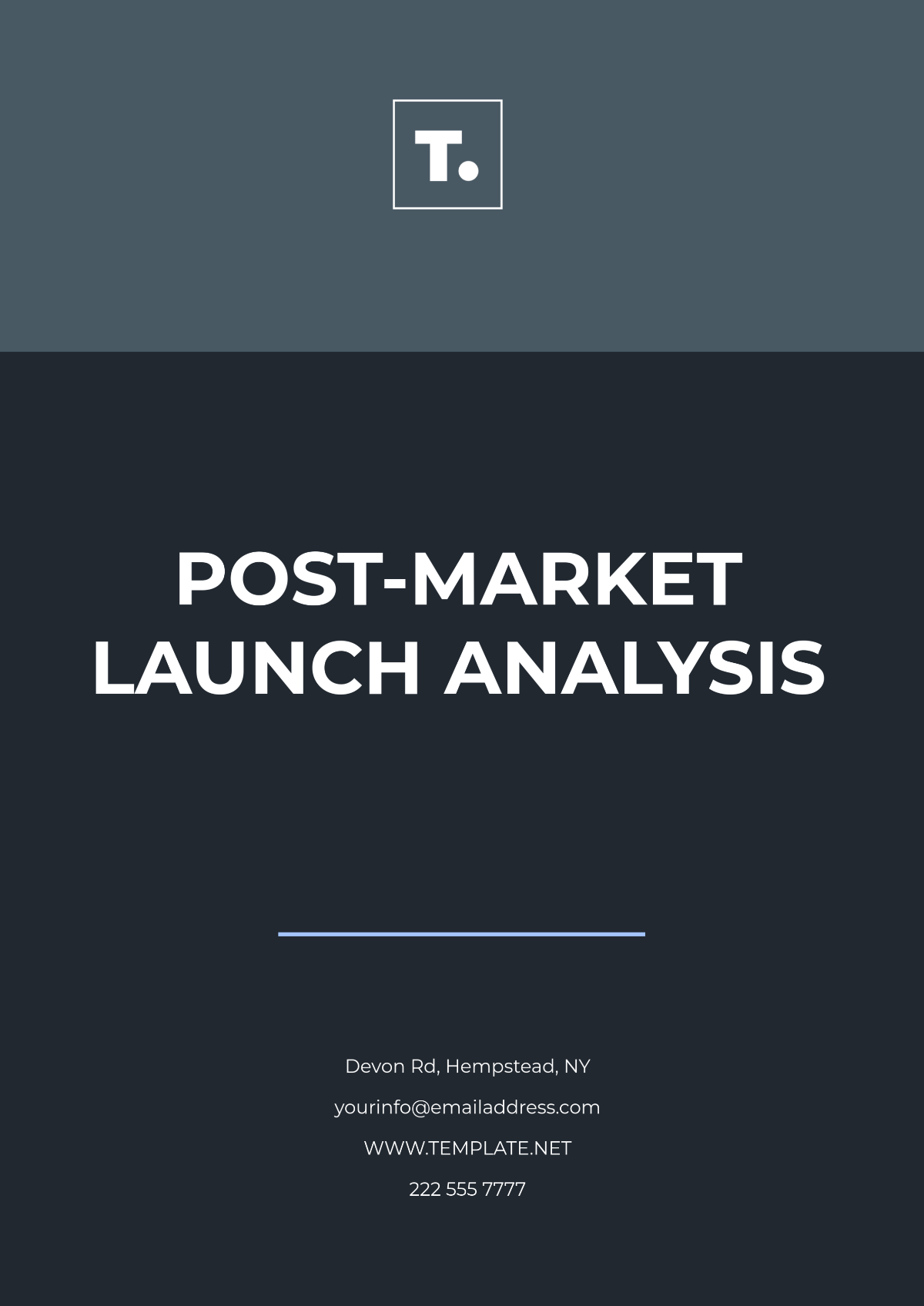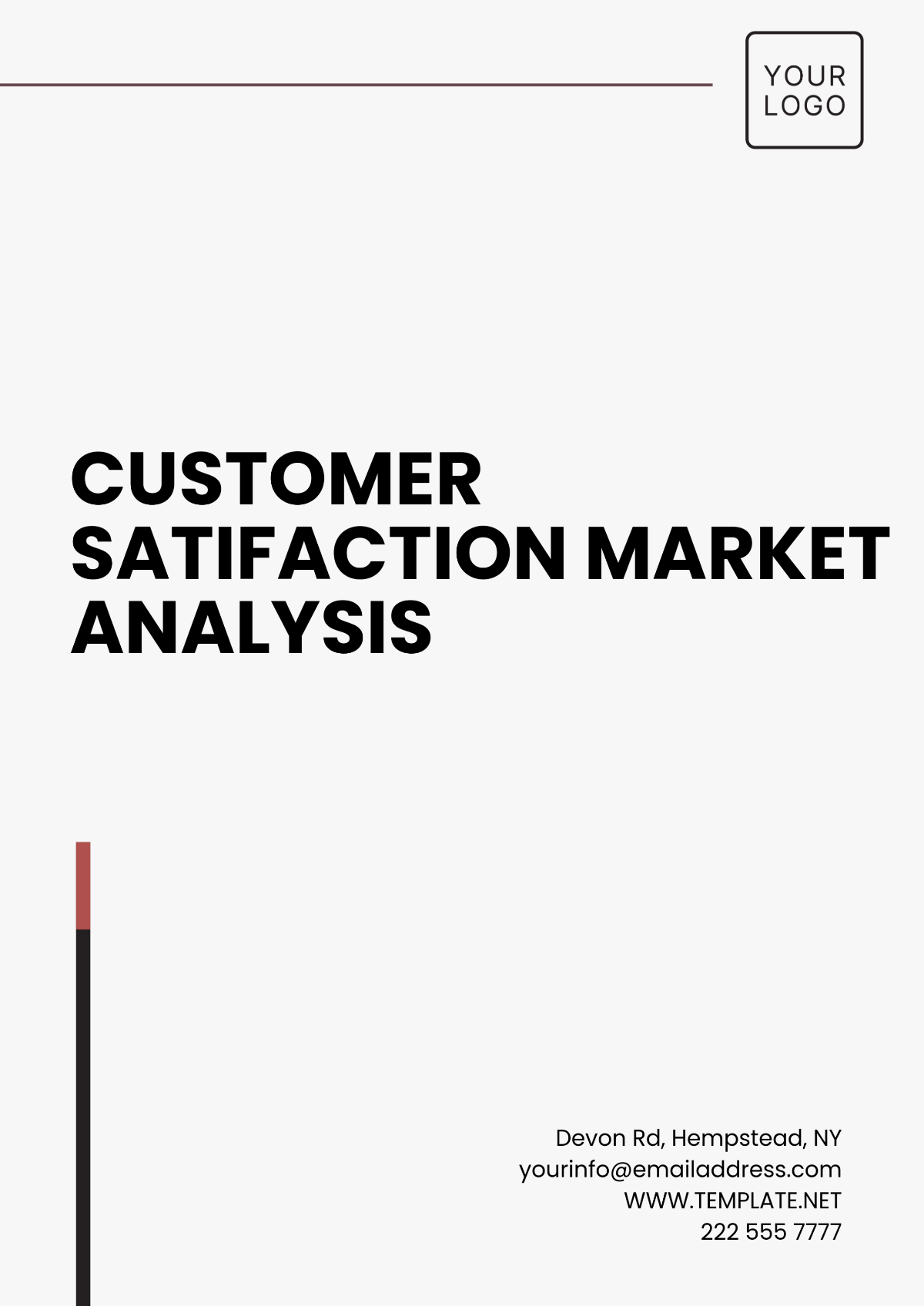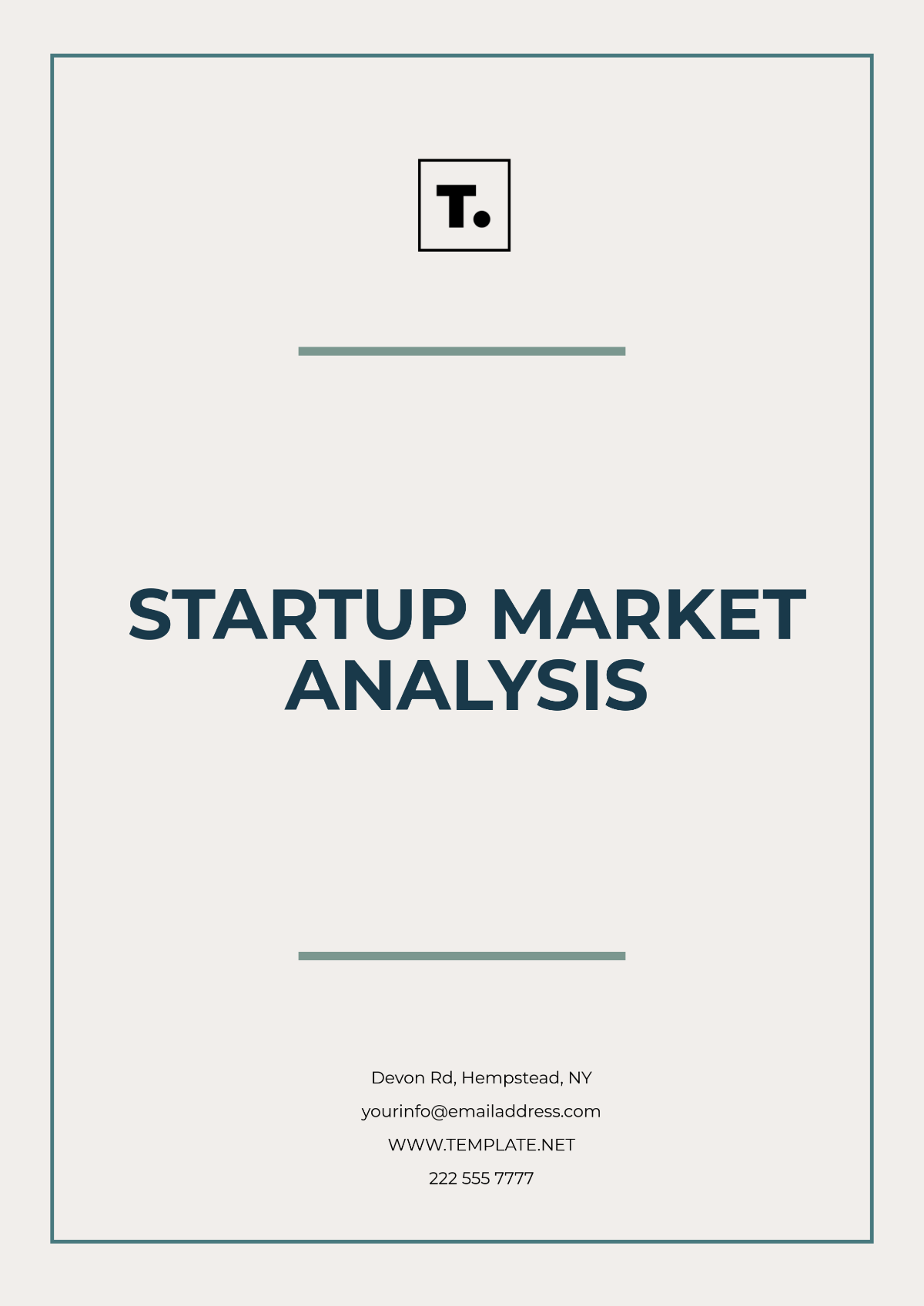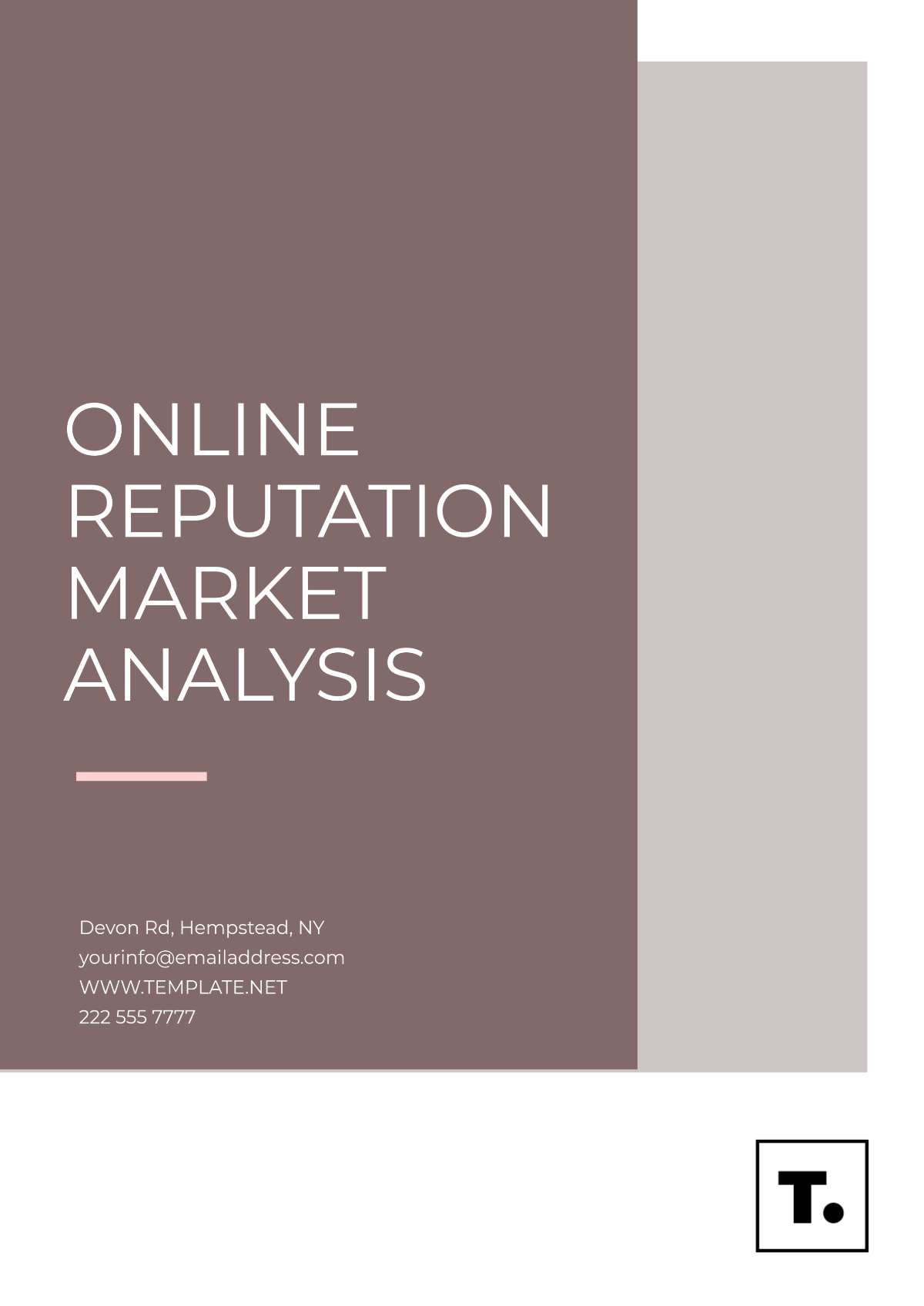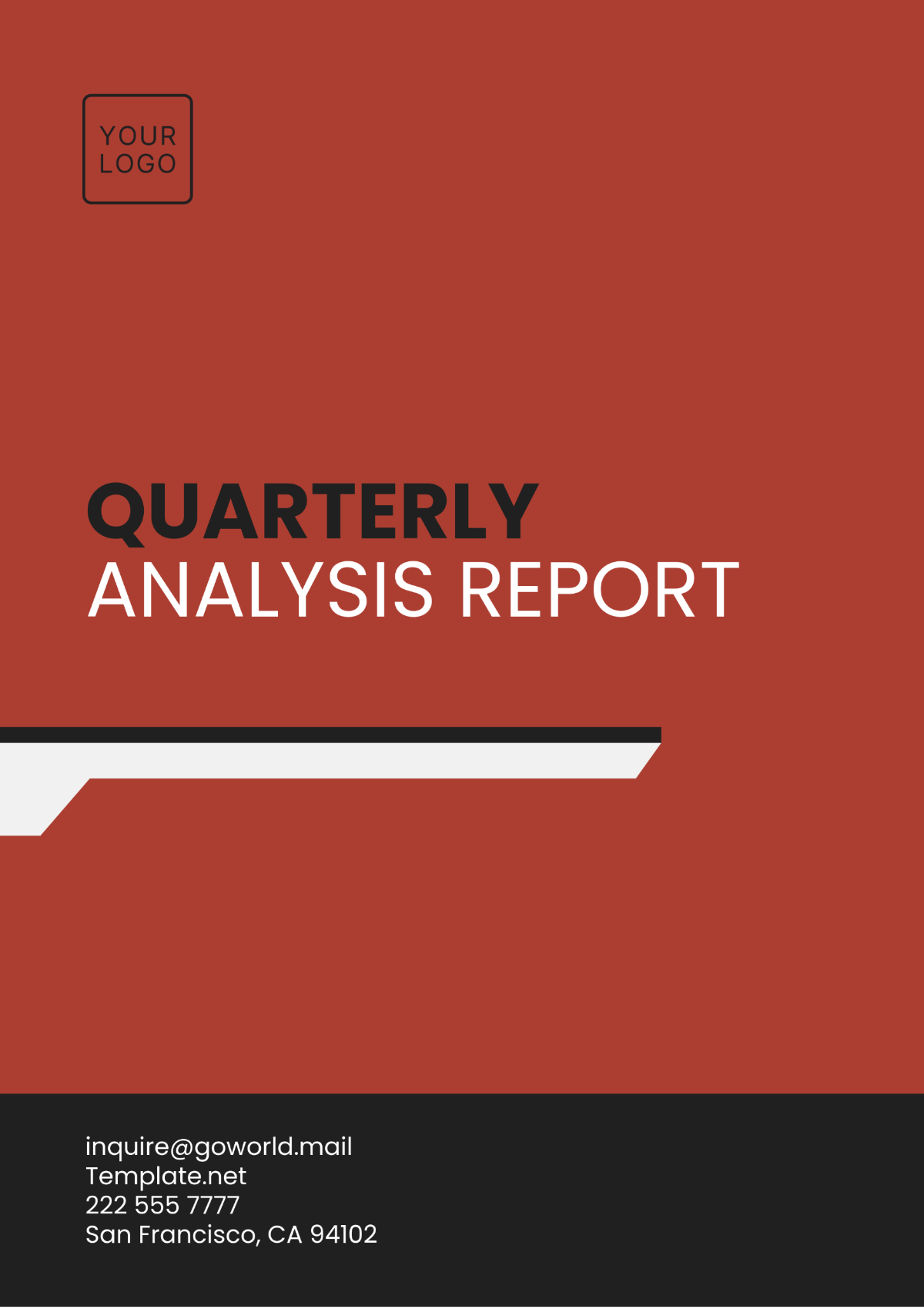Startup Market Analysis Report
Prepared by: [Your Name]
On Behalf of: [Your Company Name]
Table of Contents
I. Executive Summary
II. Market Overview
III. Market Segmentation
Region
Industry
Organization Size
IV. Key Findings
Technology Sector
Finance Sector Growth
Healthcare Resurgence
Regional Dynamics
Operational Scale
Interpretation and Application
V. Conclusion and Recommendations
Strategic Recommendations
Looking Ahead
I. Executive Summary
This detailed Startup Market Analysis Report, prepared by [Your Company Name], serves as an essential guide for navigating the complex startup ecosystem. It provides a thorough examination of current market trends, identifying significant opportunities and potential challenges that startups may encounter. Through an in-depth analysis spanning global, regional, and local markets, this report aims to equip stakeholders with critical insights for informed strategic planning and decision-making. Highlighting the importance of innovation, adaptability, and strategic alliances, [Your Company Name] seeks to enable startups to leverage their unique strengths in a highly competitive environment.
II. Market Overview
In an era marked by rapid technological advancements and shifting consumer behaviors, the startup sector continues to demonstrate remarkable resilience and growth. This vitality is fueled by a confluence of factors, including the emergence of new technologies, the digital transformation of traditional industries, and the increasing importance of sustainability and social responsibility in business practices. However, startups also face significant hurdles, such as access to funding, regulatory complexities, and the need to continuously innovate in a crowded marketplace.
This overview dissects these dynamics, offering startups a lens through which to view the current landscape, assess their positioning, and strategize for future success. By understanding these critical drivers and challenges, startups can better navigate the complexities of the market, identify untapped opportunities, and devise robust strategies to mitigate risks and capitalize on the growth potential within their respective sectors.
III. Market Segmentation
This section offers a granular perspective of the startup market segmented by industry, region, and organization size.
We have analyzed each of these segments in detail to identify growth opportunities and risks associated with them.
Region | Industry | Organization Size |
|---|---|---|
Americas | Technology | 1-10 Employees |
EMEA | Finance | 11-50 Employees |
APAC | Healthcare | 51-200 Employees |
Global | Telecom | 201-500 Employees |
Global | Auto | Over 500 Employees |
Region
Region | Characteristics | Opportunities | Challenges |
|---|---|---|---|
Americas | Strong tech startup presence, innovative ecosystem. | Access to venture capital. | High competition. |
EMEA | Growing finance startup sector, regulatory support. | Innovative banking solutions. | Regulatory complexities. |
APAC | Surge in healthcare startups, digital health focus. | Rising health consciousness. | Market saturation in some areas. |
Industry
Industry | Global Share | Annual Growth Rate | Key Drivers |
|---|---|---|---|
Technology | Highest | Rapid | AI, Blockchain, IoT innovations. |
Finance | High | Highest in last 2 years | Digital banking, fintech solutions. |
Healthcare | Third-largest | Accelerated during pandemic | Telehealth services, health tech advancements. |
Organization Size
Size | Description | Typical Characteristics |
|---|---|---|
1-10 Employees | Early-stage startups | Niche focus, initial product development. |
11-50 Employees | Growth-stage startups | Market expansion, product diversification. |
51-200 Employees | Mature startups | Operational scaling, team growth. |
201-500 Employees | Established entities | Market leadership, sustainability focus. |
IV. Key Findings
This segment of the report distills pivotal insights gleaned from our comprehensive market analysis, spotlighting the sectors and trends that currently shape the startup ecosystem. Our findings reveal that the Technology sector leads in innovation, the Finance sector is undergoing rapid growth due to digital transformation, and the Healthcare sector has experienced a significant expansion, especially in light of recent global challenges.
Furthermore, the APAC and Americas regions emerge as key players in nurturing startup growth, with a notable trend towards operational scaling among startups, particularly those with 50-200 employees. These insights are instrumental for startups aiming to navigate the market effectively, adapt strategies, and harness potential growth avenues.
Technology Sector
The Technology sector stands at the forefront of the startup ecosystem, driven by relentless innovation and the adoption of emerging technologies such as artificial intelligence, blockchain, and the Internet of Things (IoT). This dominance is attributed to the sector's ability to rapidly evolve, meet changing consumer demands, and disrupt traditional industries. Startups within this sector not only attract significant investment but also set trends that define the future of business across all industries. Their growth is a testament to the critical role of technological advancement in driving economic progress and the importance of staying at the cutting edge to remain competitive.
Finance Sector Growth
Marked by an unprecedented acceleration, the Finance sector's growth is propelled by the digital transformation sweeping through financial services. Fintech startups are at the heart of this growth, revolutionizing banking, investment, and personal finance management through innovative technologies. This sector's rapid expansion highlights the shifting landscape of financial services, where convenience, security, and user-centric solutions are paramount. The surge in fintech startups underscores the market's readiness for digital finance solutions, positioning the Finance sector as a fertile ground for innovation and investment.
Healthcare Resurgence
The Healthcare sector witnessed a remarkable resurgence, significantly amplified by the global pandemic. This period highlighted the indispensable value of health technology startups, which have played a crucial role in responding to the crisis through telehealth services, digital diagnostics, and e-pharmacy platforms. The expansion of this sector reflects a broader societal shift towards prioritizing health and wellness, driven by technological advancements that make healthcare more accessible and efficient. The resilience and innovation demonstrated by healthcare startups have not only addressed immediate challenges but also paved the way for long-term transformations in the sector.
Regional Dynamics
The APAC and Americas regions have emerged as dynamic hubs for startup activity, each offering unique opportunities and challenges. In the APAC region, a rapidly growing middle class and digital adoption fuel startup growth, with a strong emphasis on e-commerce, digital finance, and health tech. Conversely, the Americas, particularly Silicon Valley, continue to be synonymous with technological innovation, attracting global talent and investment. The vibrancy of these regional ecosystems contributes significantly to the global startup landscape, offering diverse pathways for startup success and international collaboration.
Operational Scale
A noteworthy trend in the startup ecosystem is the prevalence of startups in the 50-200 employee range, indicating a move towards operational scaling. This trend suggests that many startups are successfully navigating the transition from early-stage to growth-stage, focusing on expanding their market presence and solidifying their business models. The scaling of operations is a critical phase, marked by challenges in managing growth, maintaining company culture, and ensuring financial sustainability. However, it also represents a period of opportunity, where established startups can leverage their position to innovate, enter new markets, and drive significant revenue growth.
These key findings provide a nuanced understanding of the current startup ecosystem, offering valuable insights for stakeholders to make informed decisions, anticipate market shifts, and strategically position their ventures for success in a rapidly evolving landscape.
Table: Key Findings and Market Insights
Sector/Aspect | Attribute | Statistic | Year | Remarks |
|---|---|---|---|---|
Technology Sector | Market Share | Highest | [Year] | Dominated by AI, Blockchain, IoT |
Investment Growth Rate | 20% annually | [Year] | Highest among all sectors | |
Finance Sector | Annual Growth Rate | 25% annually | [Year] | Driven by digital banking and fintech solutions |
Venture Capital Funding | $10B | [Year] | Reflects significant investor interest | |
Healthcare Sector | Expansion Rate | 15% annually | [Year] | Boosted by pandemic-driven demand for health tech |
Investment in Health Tech | $5B | [Year] | Increased focus on telehealth and diagnostics | |
Regional Dynamics | APAC Startup Growth | 30% annually | [Year] | E-commerce and digital finance lead the growth |
Americas Innovation Index | High | [Year] | Silicon Valley remains a global innovation hub | |
Operational Scale | Startups with 50-200 Employees | 60% | [Year] | Indicates a trend towards scaling operations |
Growth Challenges | 40% report | [Year] | Cite managing growth as a top challenge |
Interpretation and Application
Technology Sector: The statistic of a 20% annual investment growth rate underscores the sector's appeal and the pivotal role of emerging technologies in attracting funding. Companies in this sector are advised to continue pushing the envelope in innovation to capture a larger market share.
Finance Sector: With an annual growth rate of 25% and venture capital funding reaching $10 billion, the finance sector, particularly fintech, is ripe for startups looking to disrupt traditional banking and financial services.
Healthcare Sector: The sector's 15% expansion rate, coupled with a $5 billion investment in health tech, highlights the growing importance of digital health solutions. Startups focusing on telehealth, diagnostics, and e-pharmacy platforms are well-positioned for growth.
Regional Dynamics: The 30% annual growth in the APAC region points to vast opportunities for startups in e-commerce and digital finance, while the high innovation index in the Americas signals a conducive environment for tech-driven ventures.
Operational Scale: With 60% of startups falling within the 50-200 employee range and 40% citing managing growth as a challenge, there's a clear indication that while scaling presents opportunities, it also requires careful planning and management to overcome associated hurdles.
V. Conclusion and Recommendations
The analysis presented in this report underscores the dynamic and competitive nature of the startup ecosystem. Amidst rapid technological advancements and shifting consumer behaviors, startups face both unprecedented opportunities and challenges. Drawing from our in-depth market analysis, [Your Company Name] offers a suite of strategic recommendations designed to empower startups to not only navigate but thrive in this evolving landscape.
Strategic Recommendations
Embrace Technological Innovation: In a market where technology is both a disruptor and enabler, startups must prioritize innovation as a core strategy. Investing in research and development, exploring emerging technologies like AI, blockchain, and IoT, and fostering an organizational mindset geared towards innovation will be crucial. This approach ensures startups remain at the forefront of their industries, driving sustainable growth and competitive advantage.
Align with Consumer Trends: Understanding and anticipating consumer needs and preferences is vital. Startups should employ data analytics to gain insights into consumer behavior and adjust their business models to meet these evolving demands. Personalization, convenience, and sustainability are key trends that can drive differentiation and loyalty in a crowded marketplace.
Optimize Digital Presence: In today’s digital-first world, leveraging online platforms for marketing, customer engagement, and sales is non-negotiable. Startups should harness the power of digital marketing to build brand awareness, engage with their audience, and drive conversions. Additionally, exploring innovative financing options and automating processes can enhance operational efficiency and customer experiences.
Cultivate a Resilient Startup Culture: The journey of a startup is filled with uncertainties. Building a culture that values creativity, adaptability, and resilience can prepare teams to face challenges head-on, pivot when necessary, and capitalize on new opportunities. Encouraging experimentation, learning from failures, and celebrating successes are essential practices that foster a supportive and innovative environment.
Seek Strategic Partnerships: Collaboration can unlock new opportunities and resources for startups. Forming partnerships with other companies, whether for technology sharing, market access, or co-branding initiatives, can provide a significant edge. These alliances can enhance product offerings, expand customer bases, and facilitate entry into new markets.
Looking Ahead
As the startup ecosystem continues its rapid evolution, staying informed and agile will be key to success. [Your Company Name] is committed to providing ongoing insights and analysis to help startups navigate these changes effectively. By implementing the recommendations outlined above and staying attuned to market shifts, startups can position themselves for sustained growth and success. Future reports from [Your Company Name] will continue to offer fresh perspectives and strategic guidance, ensuring startups are well-equipped to stay ahead of the curve in an ever-changing market landscape.


